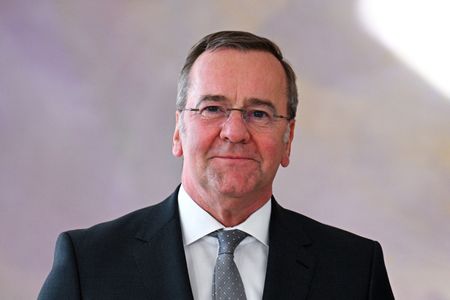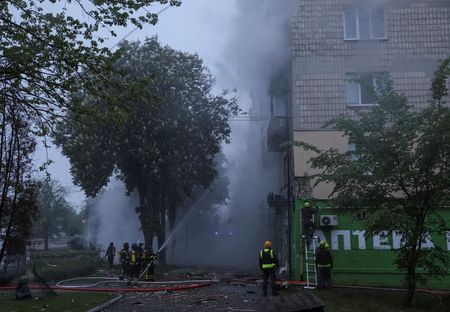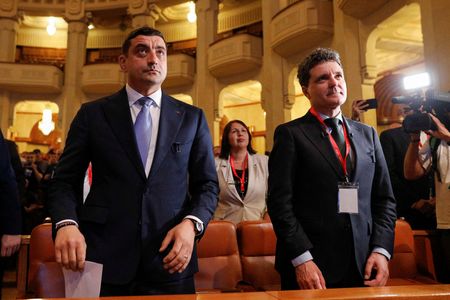By Sabine Siebold, Markus Wacket and Holger Hansen
BERLIN (Reuters) – German Defence Minister Boris Pistorius is seeking a drastic increase in the country’s annual defence budget to over 60 billion euros ($68.21 billion) starting in 2025, two sources familiar with the matter told Reuters.
In 2024, the regular defence budget was 52 billion euros. It was supplemented by 20 billion euros from a special 100-billion-euro fund created in response to Russia’s invasion of Ukraine.
The fund aims to bring Germany’s long neglected military back up to speed but will be fully used up by 2028.
Pistorius wants the budget hike to take effect in 2025, one of the sources said on Tuesday, adding that the minister aimed to keep annual spending at over 60 billion euros for the coming four years and that it would be covered by the government’s medium term spending plans.
A second source, also speaking on condition of anonymity, indicated on Wednesday that the defence ministry was aiming for a budget of some 63 billion euros in 2025.
This would represent a 10 billion euro increase from the budget proposal under former Chancellor Olaf Scholz’s coalition before it collapsed last November.
“Still, the challenge will be how the money can be spent in a timely way,” the source added, citing the common issue that the defence industry often struggles to ramp up production fast enough to accommodate unscheduled orders.
In 2024, the defence ministry had difficulties meeting the NATO target of 2% military spending as a proportion of national output due to a slow disbursement of funds.
A senior government source, asked on Wednesday about the reported target of “over 60 billion euros”, was less specific but said the figure was in the right ballpark.
A spokesperson for the defence ministry, asked to comment on the matter, said the budget process for 2025 had not been completed. She would neither confirm nor deny the reported target of over 60 billion euros.
MAJOR TURNAROUND
Pistorius, a Social Democrat, is the only minister from the previous government to retain his position in the new coalition led by conservative Chancellor Friedrich Merz, which took office on Tuesday after months of negotiations.
Germany and other European nations are under heavy pressure from the Trump administration to ramp up defence spending. Europe’s NATO members also feel less able to rely on the U.S. security guarantee than in the past as they face off against a more aggressive Russia.
In a major turnaround for a country that has traditionally advocated strict fiscal discipline, Germany, Europe’s largest economy, recently approved plans for a massive spending surge.
The fiscal plan includes 500 billion euros ($569 billion) for a special fund for infrastructure and also largely removes defence investment from the domestic rules that cap borrowing.
($1 = 0.8797 euros)
(Reporting by Sabine Siebold, Markus Wacket and Holger Hansen; Editing by Sabine Wollrab, Madeline Chambers and Gareth Jones)










